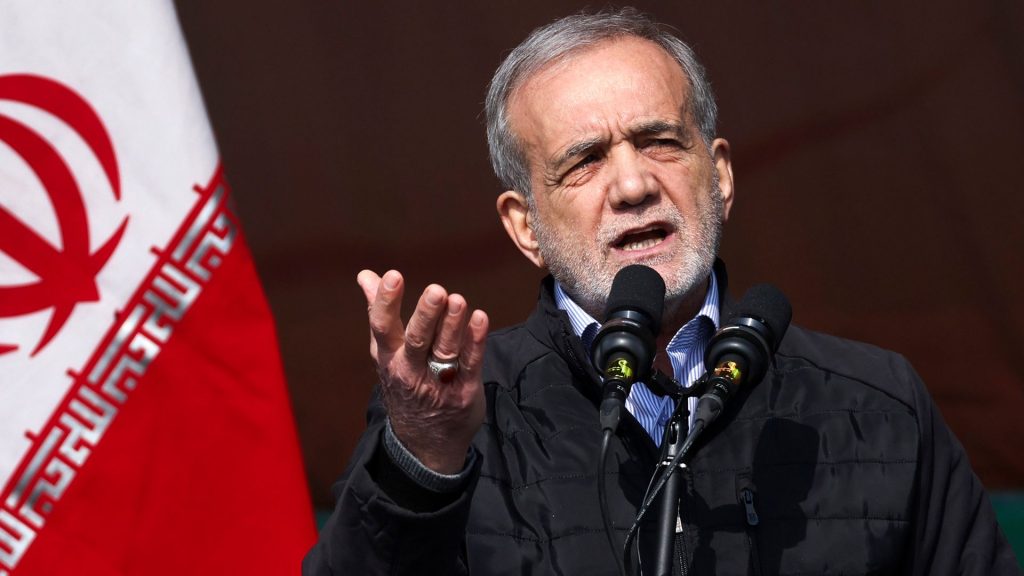Iran rejects Trump’s nuclear deal offer, leaves door open for indirect talks
Ella Greene March 30, 2025 0
- Iran’s president, Masoud Pezeshkian, rejected President Trump’s offer for a new nuclear deal. He did, however, leave open the possibility of indirect negotiations.
- The U.S. withdrew from the 2015 nuclear agreement in 2018, and Iran has since escalated its uranium enrichment program, surpassing the deal’s limits.
- Trump warned of potential military action and secondary tariffs if Iran refuses to negotiate, while both the U.S. and Israel vow to prevent Iran from acquiring nuclear weapons.
Full Story
Iran’s president, Masoud Pezeshkian, rejected President Donald Trump’s letter on Sunday, March 30, urging Tehran to negotiate a new nuclear deal. Pezeshkian did, however, leave open the possibility of indirect talks with Washington.
In 2018, the U.S. withdrew from a 2015 agreement between Iran and various world powers, which had placed strict limits on Tehran’s nuclear activities in exchange for sanctions relief. Since then, Iran has exceeded those limits as part of its escalating uranium enrichment program.
U.S. response
The Associated Press reported that the White House, State Department, and other officials did not immediately respond to Pezeshkian’s comments. However, Trump had said before Pezeshkian’s remarks that he was considering military action and secondary tariffs if Iran does not agree to a new nuclear deal.
Trump told NBC News on Sunday, “If they don’t make a deal, there will be bombing and it will be bombing the likes of which they have never seen before.”
A recent video by Iran’s hard-line paramilitary Revolutionary Guard showed troops stepping on an Israeli flag at an underground missile base. Additionally, Press TV published an article last week listing U.S. bases in the Middle East as potential targets, including Camp Thunder Cove on Diego Garcia, where U.S. stealth B-2 bombers are likely based and used in Yemen.
Why now?
Trump’s letter comes as both Israel and the U.S. have vowed to prevent Iran from acquiring a nuclear weapon, heightening fears of military confrontation as Tehran enriches uranium to near weapons-grade levels of 60% purity.
Iran has maintained that its nuclear program is for peaceful purposes, though its officials have increasingly threatened to pursue a nuclear bomb. A February report from the United Nation’s nuclear watchdog indicated that Iran has accelerated its production of near-weapons-grade uranium.
Related Stories
Ella Rae Greene, Editor In Chief
Ella Greene
Ella and the staff at Clear Media Project (CMP) curate these articles.
Unless otherwise noted CMP does not write these articles.
The views, thoughts, and opinions expressed in the articles published on this blog belong solely to the original authors and do not necessarily reflect the views of the blog owner. The blog owner does not claim ownership of the content shared by contributors and is not responsible for any inaccuracies, errors, or omissions.
All rights and credits goes to its rightful owners. No Copyright Infringement is intended. If you believe any content infringes on your rights, please contact us for review and potential removal.





